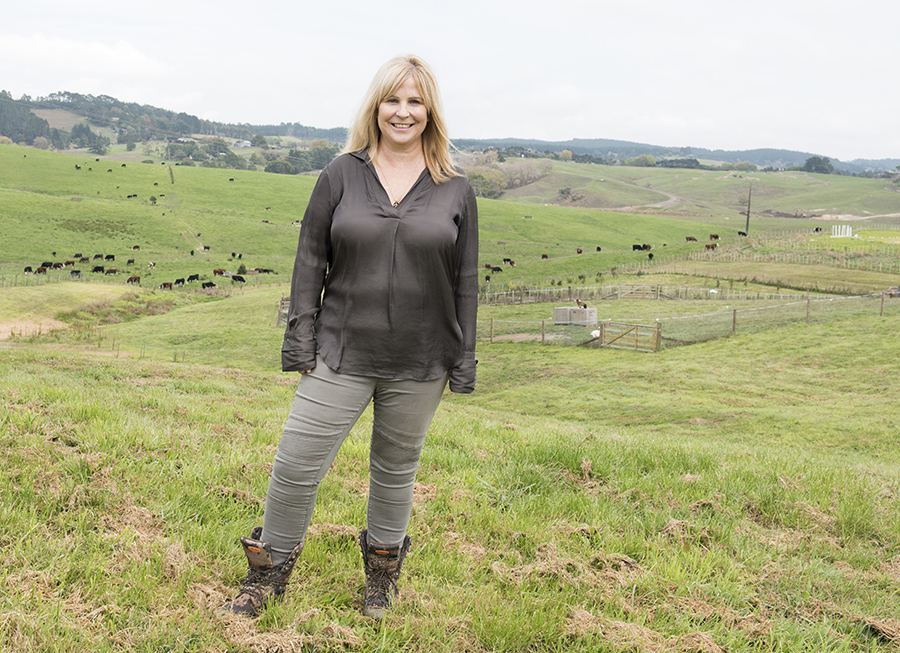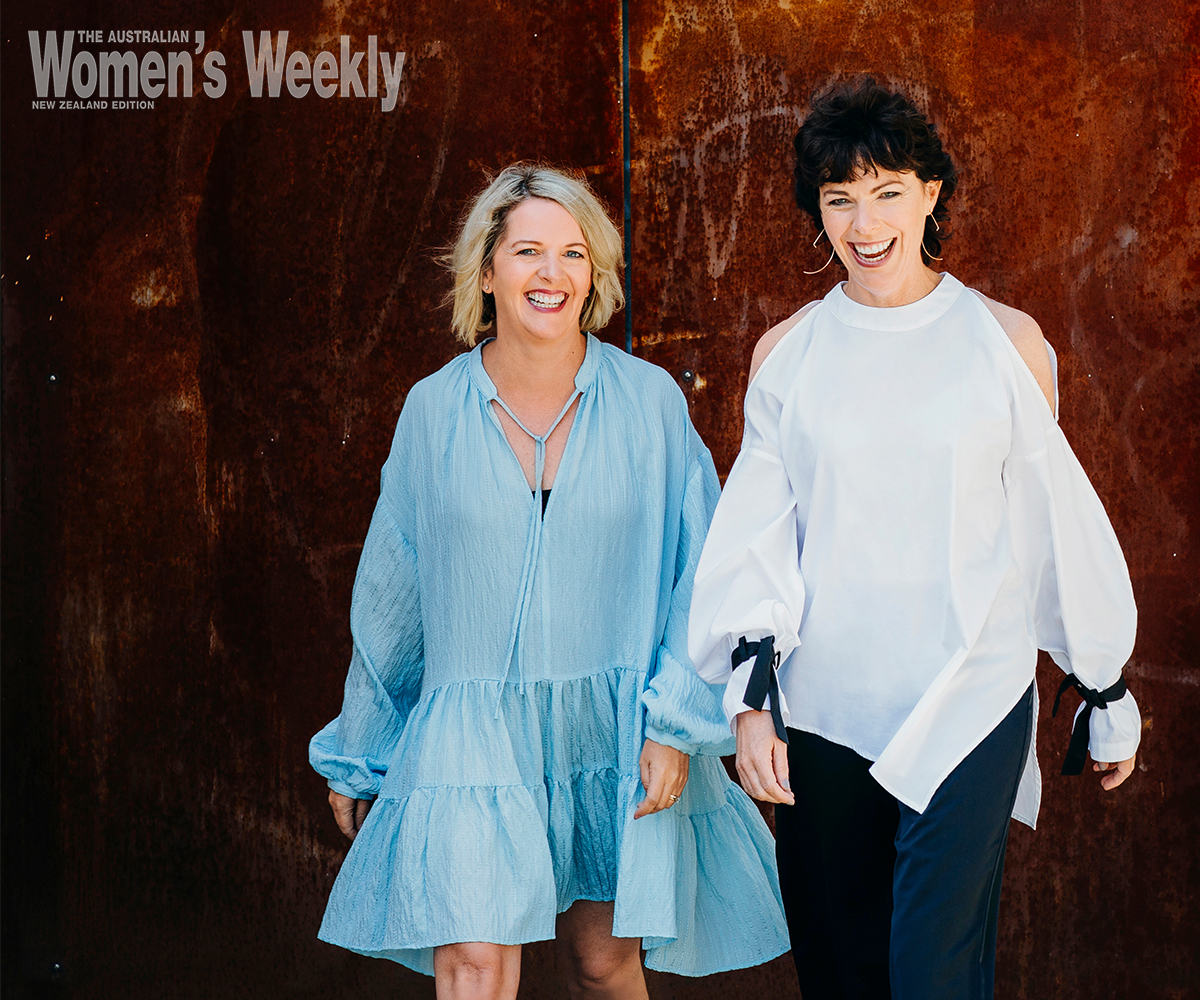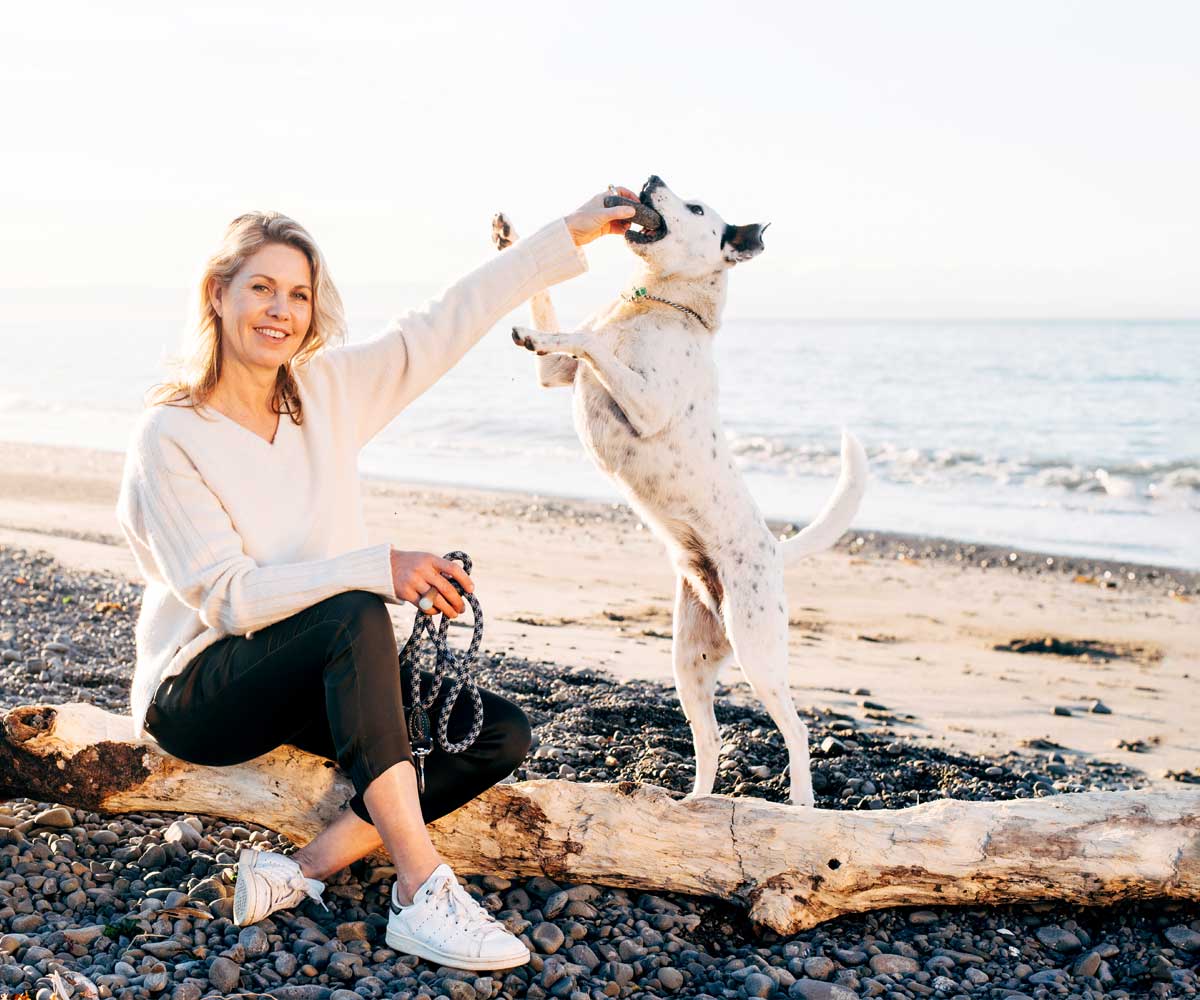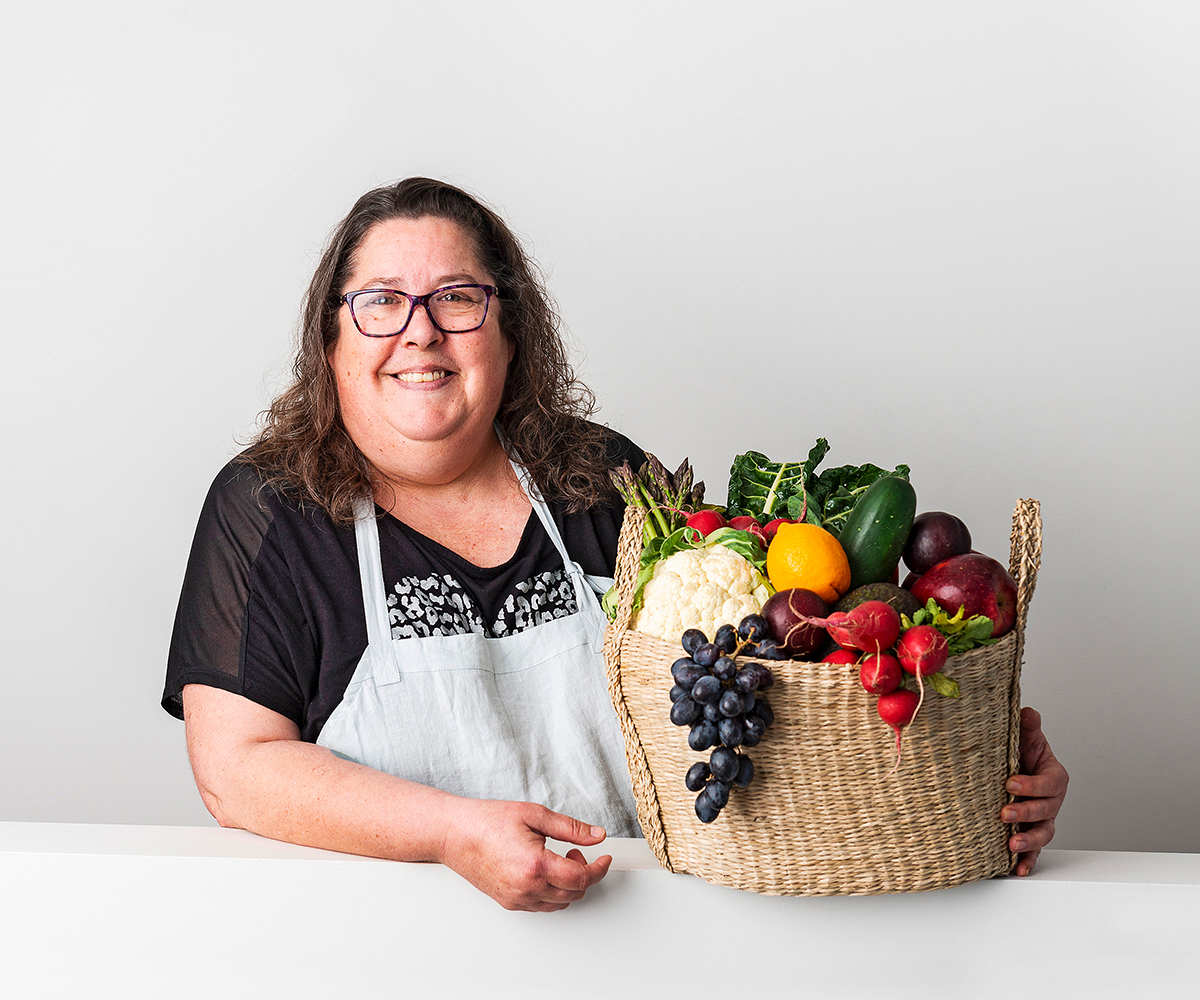Julie Chapman knows better than most the harsh reality of life for many of New Zealand’s most impoverished families.
The charity she founded, KidsCan, will this year feed more than 30,000 children. For many of them, the food they receive at school will be the only nutritious meal they’ll get.
When one little boy who received a KidsCan meal was asked what he’d had for dinner the night before, he replied, “Red soup.” Was it tomato? “No.” Red soup was the water that red sausages had been boiled in the day before.
Such is life for the one in four Kiwi kids growing up in poverty.
Julie is a self-confessed doer. “I like creating solutions to social issues not being addressed,” she tells me frankly. We chat in her office in north Auckland, above a warehouse crammed with food, clothing and sanitary items destined for children and teenagers in need.
She is just back from a session at the gym, sporting flowing mustard trousers with a pair of killer heels to match. “I have a weakness for shoes,” she says, grinning.
Julie was moved to found KidsCan when a teacher friend told her kids weren’t coming to school when it rained because they had no shoes or raincoats.
“Well, let’s get them raincoats,” Julie said.
She tells me: “It just seemed like a tangible, practical solution.”

Julie, who grew up in Oratia, is a proud Westie.
Hers is a simple mantra: “If we don’t invest in the education of children living in poverty, the poverty cycle will continue.
“We can’t expect kids to focus in class when their feet are freezing, or their uniforms are wet, or their tummies are growling.”
She recalls a student who was stuck on a creative writing exercise. The teacher told him, “Just write what’s in your head.” He filled the page. “I’m hungry, I’m hungry, I’m hungry,” it read.
“We can’t underestimate the impact that has,” she says.
“It’s not just feeling hungry – it’s feeling shame. Kids notice when they don’t have what others have. They don’t want to be different. And when they’re overwhelmed by shame, they’re not learning.”
It’s hard not to be inspired by Julie.
She is a one-woman powerhouse. (She would dispute that, saying she is surrounded by a team of good people.) She uses her marketing backgound to great effect, galvanising loyal corporate and public support for her cause.
“I get frustrated by inaction. I like to get things done,” she says.
Julie inherited those values from her parents.
She is Alice and Kenneth Helson’s only child. Her dad managed the legendary Auckland demolition firm Smith’s. Her mum, an Australian, met Kenneth while here on holiday and stayed on, working alongside him.
“Dad was a very practical man of few words,” Julie says.
“He was tenacious and impatient. I’m probably the same.” With a grin, she adds, “Although I’ve learnt to be more patient as I’ve grown older.”
Her mum was calm and level. “She was never flustered. In my whole childhood I never once heard my parents argue.”
Alice attended the Salvation Army church in Glenfield, where they were living when Julie was born, and made sure her daughter went to Sunday school.
There, Julie learnt the importance of community and of giving.
The family would soon move west to a bush block in Oratia, West Auckland, where Kenneth volunteered for DOC.
Julie went to the local schools and finished up at Henderson High School.
“I’m a Westie,” she says proudly, but there’s an element of sadness there too. Her old school is now one of those that KidsCan supports. “It certainly didn’t need that support when I was there.”
KidsCan is now working in 740 decile 1-4 schools nationwide, making sure the kids get at least one nutritious meal a day, plus a raincoat, shoes and health products.
Julie points to a Waikato University study that has shown that the food makes the biggest impact on attendance and learning.
Last year KidsCan expanded to include childcare centres.
“We were told children under five were crying because they were hungry. Many had no nappies, there was no money for formula. If families did have formula, they were watering it down to make it go further,” she says.
“The need is so great.”
She feels there is growing awareness of the level of poverty in New Zealand but there’s still a lot of judgement around the causes.
“[People think] if you’re living in poverty you must be there because of what you’re doing or not doing.”
But many families are trapped a cycle of despair and deprivation through no fault of their own.
Julie cites low wages and the high cost of living as key reasons families slip into poverty. That, and the lack of affordable housing.
“The government needs to build social housing. Families absolutely deserve a roof over their heads and to be able to live with dignity.
“Every two years we do a ‘Pork Pie’ mini run the length of the country from Kaitaia to Invercargill following the route of the mini in the movie Goodbye Pork Pie. This year we can’t stay in Kaitaia because pretty much every motel is booked out by WINZ for homeless families.”
Julie visits KidsCan schools as often as she can and she encourages her staff to do the same.
“It’s important that everyone is connected to the kids we help. Children are at the centre of everything we do.”
Her eyes fill with concern when she talks about a little girl scrambling to keep up with her classmates on a school camp. They were climbing a
hill.
On her feet were her mother’s best shoes – white flats. They were three sizes too big for her so her teacher had taped them to her feet. It was the best her family could do.
Julie is indignant. Why should that little girl have to struggle to participate in the way she wants to?

Animal lover Julie plans to open a refuge to house the pets of women leaving abusive relationships.
Julie has no children of her own.
“My pets are my family.” She has nine cats. “That’s one away from being a crazy cat woman,” she says with a laugh.
One is blind, one is deaf, one has one eye and another has a hole in the heart. Most are rescued from the street. She also has three dogs and two goats on the rural property she shares with her second husband, Cain Chapman.
They met when she was 17 and he 18 but they eventually split and married other people.
Years later, they reconnected on Facebook and, as Julie tells it, he came over for pizza and never left. They’ve been married seven years.
“He’s a rock for me. He’s black and white, a practical person. I’m slightly neurotic. He’s not at all.”
He was, she says, an incredible support when her beloved parents died four years ago.
They were a close family, Alice, Kenneth and Julie. Two weeks after Alice died of motor neurone disease, Julie’s dad, Kenneth, was diagnosed with terminal cancer.
“It was a horrific experience, losing Mum and Dad,” she says.
“I remember saying to Cain, ‘I’m never going to be happy again.’ Then one morning the fog lifted.”
That’s when this “doer” began to throw herself into her latest project.
When her father was dying, he asked what she wanted to do with the money from the sale of his house. It was then she told him about her plan for a pet refuge.
“I’ve always wanted to do something for animals,” she explains.
She’d become aware that women were often delaying leaving abusive relationships because they were afraid of what would happen to their pets. Julie herself endured an abusive relationship in her 20s.
“It shows you how easy it is for women to become trapped. I already knew about the work of Women’s Refuge [she worked in a refuge after leaving school] but it creeps up on you. I was always adamant it was never going to happen to me. [But] he was jealous and controlling.”
She eventually did pluck up the courage to leave, and remains a staunch advocate of the movement.
The Pet Refuge will become a reality next year. It’s taken four years to get to the building stage. She shows me plans for what looks like a rather beautiful family home – just what you’d expect from someone with such a heart for animals.
She’s used her inheritance plus some help from her “awesome” mother-in-law.
It hasn’t been a totally smooth ride. There was vocal opposition from some neighbours, who apparently feared noise pollution and dangerous characters being drawn to the area. But Julie remains stoic.
“Nothing good is ever easy,” she tells me firmly.
If Julie Chapman has proven anything, it’s that she can make things happen. And there is nothing like the needs of others, whether they be hungry children or pets requiring shelter from abuse, to spur her on.

For more great reads pick up the latest issue of The Australian Women’s Weekly, on sale now.




